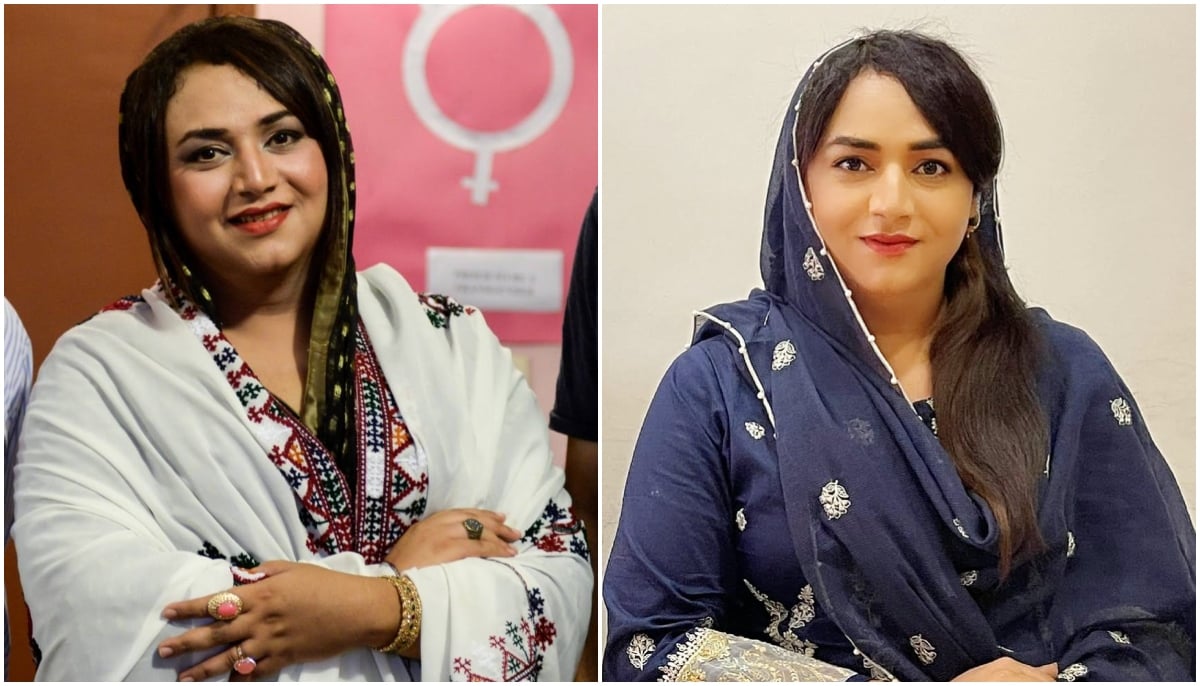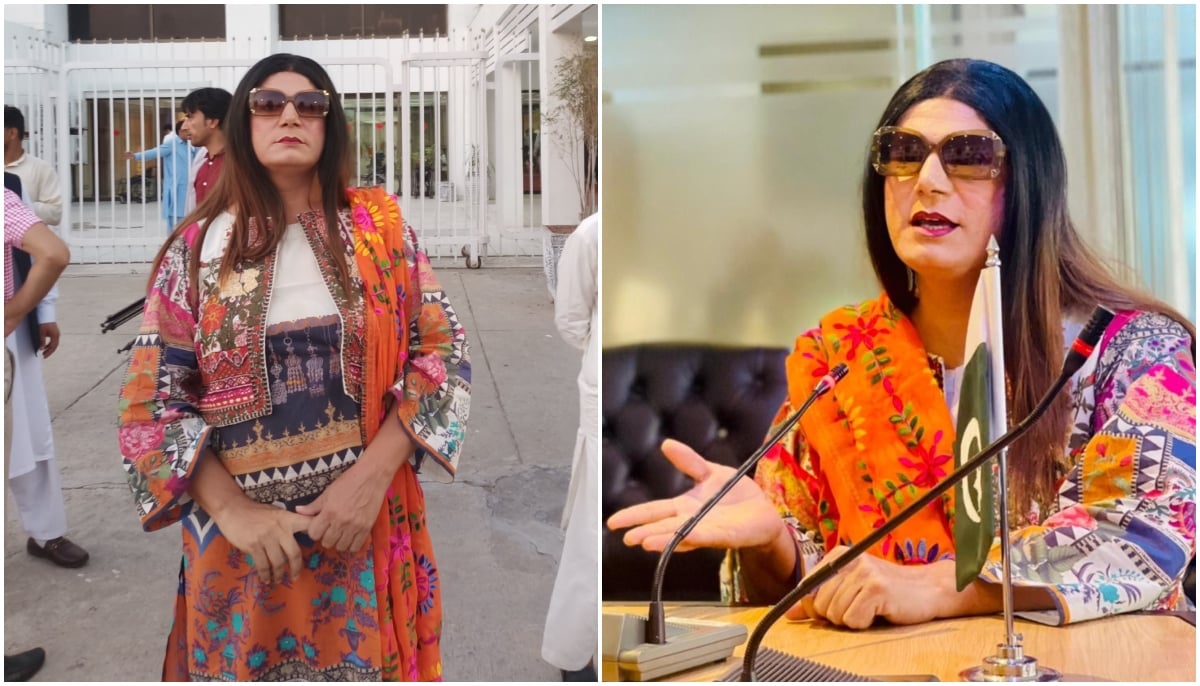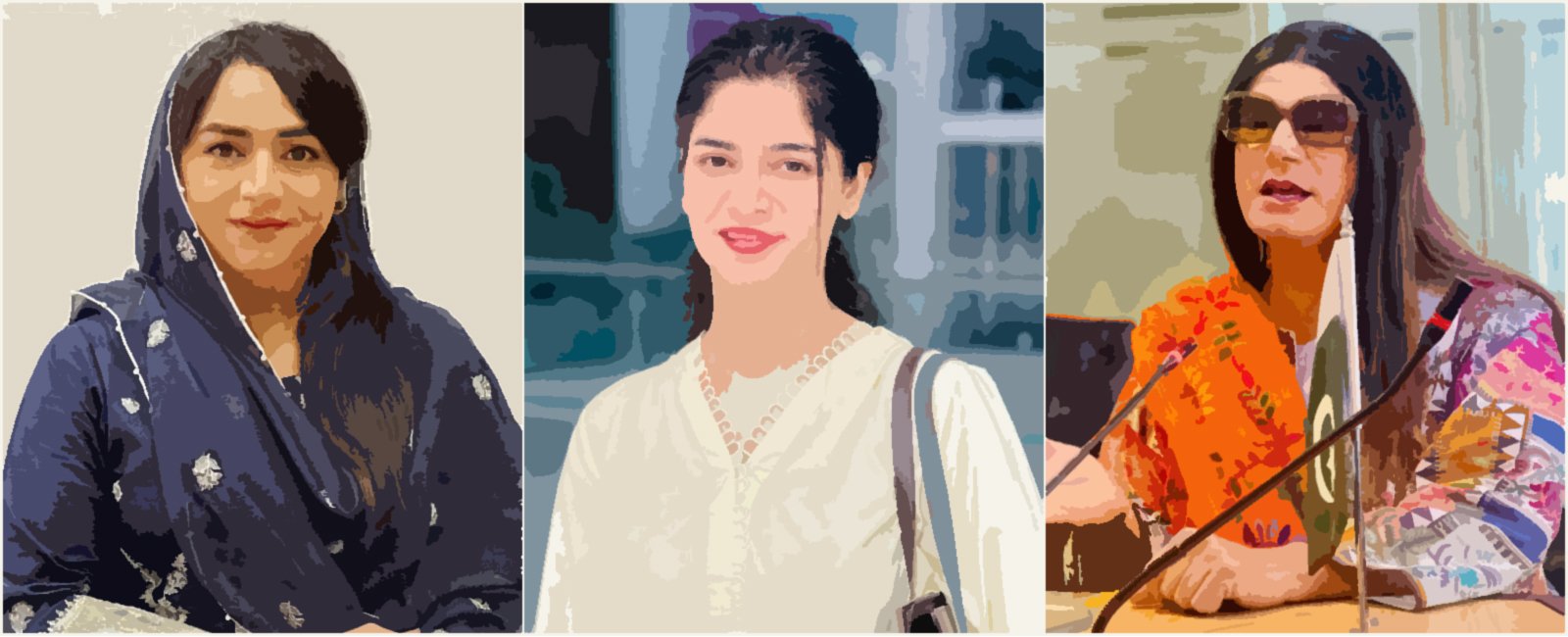After local govt milestone, how far can transgenders go in national politics?
There is need for training to equip them with knowledge and skills to sustain their participation in local government, launch careers in national politics

People of the transgender community were allowed to live with dignity in pre-colonial India where they served as political representatives, royal deputies, court functionaries, ritual performers, and diplomats. Their outright exclusion, what we see today is the legacy of racist colonialism. British Empire, brought with it a notion of gender binaries that criminalised the then well-respected Khwajasira community by enacting The Criminal Tribes Act of 1871. The act was repealed after independence in 1949 but left such a lasting effect that they continue to be the most downtrodden segment of post-independence Pakistan.
However, after decades of neglect and persecution, one of the most discriminated and ostracised ones found a silver lining when the country officially recognised a third gender in 2009 following a Supreme Court ruling. Subsequently, they got the right to vote and contest elections. They have made great strides and their latest achievement is political representation at the local level.
Earlier this year, the provincial cabinet of Sindh had approved reserved seats for the transgender community in the local councils, so that each local council has at least one transgender representative. Finally, the big moment arrived when various transpersons were sworn in as members of the municipal corporations.
Lost dignity regained
"It is a moment of pride for our whole community since we have regained the lost dignity that we had before the advent of colonial rule," said Zohaib Ali Soomro, widely known as Zehrish Khanzadi, who recently took her oath as an intersex member of the Town Municipal Corporation for Safoora.
The 33-year-old Khanzadi is a commerce graduate of the University of Karachi. She has been associated with several NGOs serving the transgender community, raising awareness against HIV and AIDS and preventive measures and has also represented Pakistan’s trans community internationally. She has now taken office at a time when the transgender movement has gained momentum whereas the culture war over gender has intensified and contentious public discourse over trans-identity is fanning the flames of violence and hostilities against the community.
"This was much needed at this time when the present hysteria over trans rights has been ignited by the far right," Khanzadi said.

The Parliament of Pakistan passed the Transgender Persons (Protection of Rights) Act in 2018, which protects the legal equality and rights of transgender persons, against which several legal and political challenges have recently mounted. The religious right-wing claimed that the law will promote homosexuality.
However, opponents of the law appeared to be confusing homosexuality, a sexual orientation, with a biological condition. In fact, the transgender community also seemed to be disputed in this fight. However, Khanzadi is gratified to see that the party that stood against them on the transgender bill is also fielding its own transgender candidate in a reserved seat.
Despite all the backlash, sweeping efforts are being made to strengthen transgender rights and improve their visibility in the country. However, Khanzadi believes that "we still have miles to go and the first step to mainstream the trans population should be the provision of Computerised National Identity Cards, which are necessary for them to exercise any of their fundamental rights, including participation in the electoral process”.
While expressing how proud she felt taking oath standing next to the other men and women, which is a rare sight, she reiterated not only her commitment to trans inclusion and social equality but also to serve the entire society.
Committed to serve
Jamaat-e-Islami-backed Muhammad Junaid, also known as Chandni Shah, a transwoman and an advocate for transgender rights, has been finalised for the Karachi Metropolitan Corporation (KMC) city council’s reserved seat.
Shah, 50, has been working to improve transgender safety and remove barriers to access to healthcare facilities. She not only understands the issues of the Karachiites but is also determined to solve them. She hopes she will inspire other members of her community as well.
"Transgenders can do much for society if given a chance. You will see that in the coming time, more and more trans community members will join the political stream," Shah said.

Shah pledged to bridge the gap between the trans community and local authorities. "I will not only bring a different lens to all policy but will also aware people of the trans community of the existing resources for skill development and learning."
Shah supports Jamaat-e-Islami’s (JI) position on the transgender bill and says will oppose everything against God’s law and that her party also advocates for the rights of the intersex community. She seems to have taken it upon herself to clear the misconception regarding her party. Meanwhile, addressing the myths about the trans community which breed misunderstandings and prejudice is one of her main objectives.
Representation matters
Given the social isolation and sense of deprivation faced by the trans community in our society, it would be understandable if they were less inclined to participate in civic life or the political process. But even so, the sense of political efficacy among trans representatives is commendable. Perhaps many people still have questions, why trans representation matters? Why must we involve them in all aspects of the political process? And how effective is their representation at the local level and that too on reserved seats?
"It’s a crucial step forward to support and promote gender equality," said Shahzadi Rai, who has recently been appointed as an intersex member of the KMC city council. Rai, 33, is a focal person for the trans community in Sindh police. She is a neuro-linguistic practitioner, is also associated with Gender Interactive Alliance (GIA) as a violence case manager, and has been working for the legislative rights of the trans community.
To make political institutions democratically legitimate and responsive to all citizens, they must include a plurality of groups within the population. First and foremost, their representation will support the cultural acceptance of the trans community. Meanwhile, they will bring a diverse range of issues for consideration and also suggest their solutions. Moreover, their presence will enable political bodies and other local representatives to avail themselves of the capacity and skills of the population in forming policies to advance the progress of all.

A five-member transgender delegation also recently called on Karachi Mayor Murtaza Wahab to discuss matters of transportation, healthcare and housing facilities for their community.
“He encouraged us to work for the society and said that his administration will ensure our right to live as dignified and equal citizens,” Rai shared.
The delegation proposed allocating a separate ward for trans people in Abbasi Shaheed Hospital. Also, it drew his attention to those affected by the anti-encroachment operation in areas near Gujjar and Orangi nullahs. During the operation, three homes belonging to trans people were demolished, but they were still not counted among the affectees.
Meanwhile, the mayor assured immediate implementation of their proposal to make recreational facilities accessible to transgender. Furthermore, they also proposed allocating two seats for trans commuters in public buses. However, they have been assured that the suggestion will be conveyed to Sharjeel Memon, the provincial minister for information, transport, and mass transit.
The city's mayor recently announced to ban plastic bags in the coming days. These representatives are also aware of the environmental challenges of the city. Therefore, they suggested starting a project in collaboration with KMC and GIA under which trans people who are forced to beg at traffic signals would be provided eco-friendly paper bags to sell. However, the feasibility and effectiveness of this project are yet to be evaluated.
Train to serve better
Having knowledge about relevant planning, development process, opportunities as well as challenges, and skills to serve and make educated decisions related to service delivery is critical to governing and leading citizens. These trans representatives are staunch activists, have been working in various capacities for the welfare of trans people, and are now growing into political power.
However, political as well as professional development is about always improving. The reserved seat system served as a way of getting them into the local government but their political empowerment should go beyond just physical representation and must include their ability to influence policy development and implementation.
There is a need for training and retraining to equip them with the knowledge and required skills to sustain their participation in local government, launch careers in national politics, and prepare for higher levels of public office.
Equity and human rights are the cornerstones of a democratic society. Therefore, achieving representation in local government is not only a great success for the whole trans community but should also be embraced as a huge step forward in our struggle to make this society more inclusive. Their presence in local bodies will make the voice of their community better heard and they are undoubtedly committed to serving all citizens.
However, they do not consider it their point of disembarkation. They look to the future where they can see themselves adequately represented in national politics. Hence, this gender inclusivity initiative must go beyond token gestures to equipping trans representatives with the right resources to ensure complete participation and encourage their agency.
Hira Saeed Farooqui is a Karachi-based freelance journalist. She tweets @HiraSaeed06




